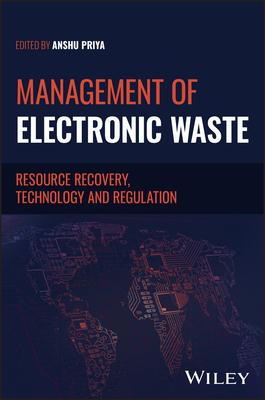Holistic view of the current and future trends in electronic waste management, focusing on recycling, technologies, and regulations
Management of Electronic Waste delivers a complete overview of all aspects related to the toxicity characterization of electronic wastes, along with other important topics including resource recovery, recycling strategies, biotechnological advancements, and current perspectives on waste generation and management. The book presents hazards associated with conventional recycling methods and highlights environmentally compatible economic approaches for resource recovery, along with eco-friendly strategies for management of electronic wastes.
The high metallic content, heterogeneous and composite nature of e-wastes make them a rich secondary reservoir of metals. The book explores the valuable potential of e-waste and highlights the eco-friendly, sustainable technologies and recycling strategies for the profitable and effective conversion of waste to wealth.
Written by a highly qualified and internationally renowned author, Management of Electronic Waste covers sample topics such as:
- Rise of e-waste generation paired with rising economies and mounting demand for electrical and electronic devices, with a country-by-country breakdown
- Status of e-waste management and recycling efforts around the world, along with key processes that drive e-waste recycling
- Macroeconomic trends between global demand and supply for metal resources and the transition of linear to circular economy
- Bioleaching, an economic and green approach for recovery of metals, from e-waste and other low grade metal repositories
- Different metallurgical approaches for extraction and recovery of resources from e-waste and their pros and cons
Filling a gap on the understudied biotechnological recycling techniques and methods for mitigating environmental pollution caused by electronic waste, Management of Electronic Waste serves as an excellent guide on the subject for electronic waste producers, consumers, recycling industries, policy and law makers, academicians, and researchers.
